’We Turn ‘Spoilt’ Crop Into Profits’: Startup Helps Women Farmers Become Breadwinners
Uttarakhand’s Nidhi Pant, along with her six college friends, launched an agri-tech startup to help women from low-income, climate-threatened communities sell produce dismissed as spoilt by converting farm losses to value-added products.
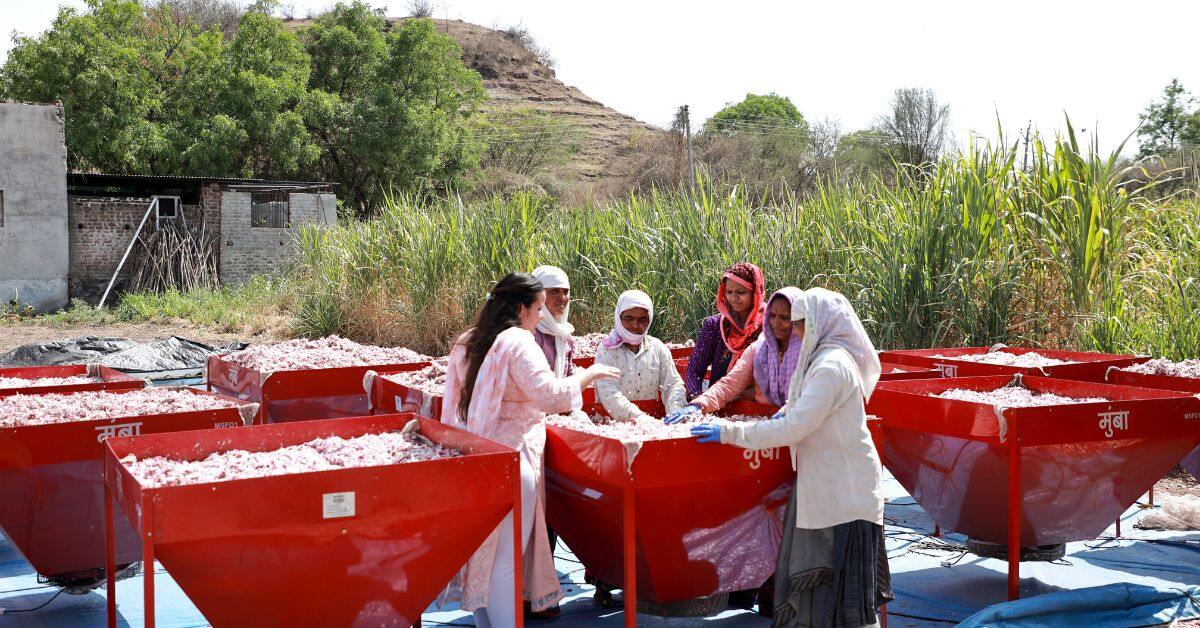
While India is the second largest producer of fruits and vegetables in the world, more than 40 percent of the produce is wasted because of a fragmented and unorganised supply chain. It costs the country about $14 billion every year. Meanwhile, cultivators continue to be pushed into poverty.
To address this huge problem, Aurangabad-based chemical engineer Nidhi Pant launched S4S (Science For Society) Technologies — a food processing platform to integrate a chain wherein farmers extract the maximum output of their produce which is otherwise sold at throwaway prices or left in the farm to rot.
“If you go to the farmgate, you will find the farmers not getting a fair price for their produce. At times, the cost of harvesting is greater than the output. They leave the produce without even harvesting it. This problem is very big. I have seen it in Mumbai mandi (market) and also in my village,” the 30-year-old, who hails from Rudraprayag district of Uttarakhand, tells The Better India.
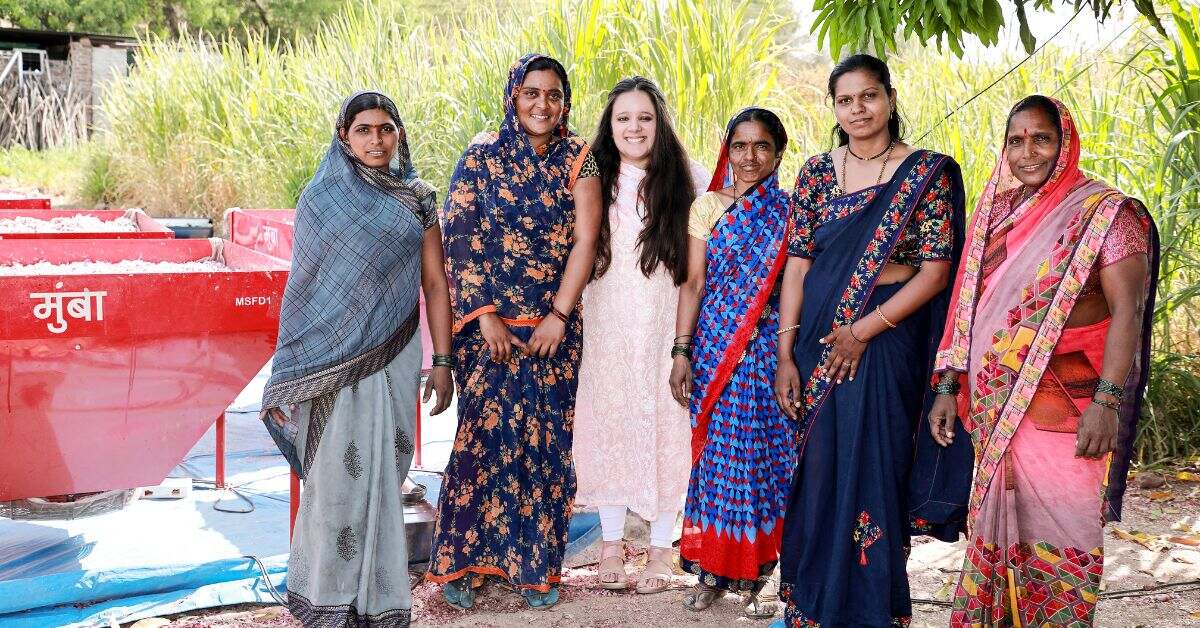
“It is such a big paradox that at one end, this produce is being wasted, and on the other, farmers are in poverty as they are unable to tap distant markets,” she adds.
In 2013, Nidhi launched the startup along with her six college friends. They have created a platform that converts farm losses (lower-grade produce) into food ingredients using its patented solar-powered food processing system.
‘We rise by lifting others’
Coming from a farming background, Nidhi understands the challenges faced by rural farmers every day. She was inspired by her father who used to work as a farmer and later became a scientist.
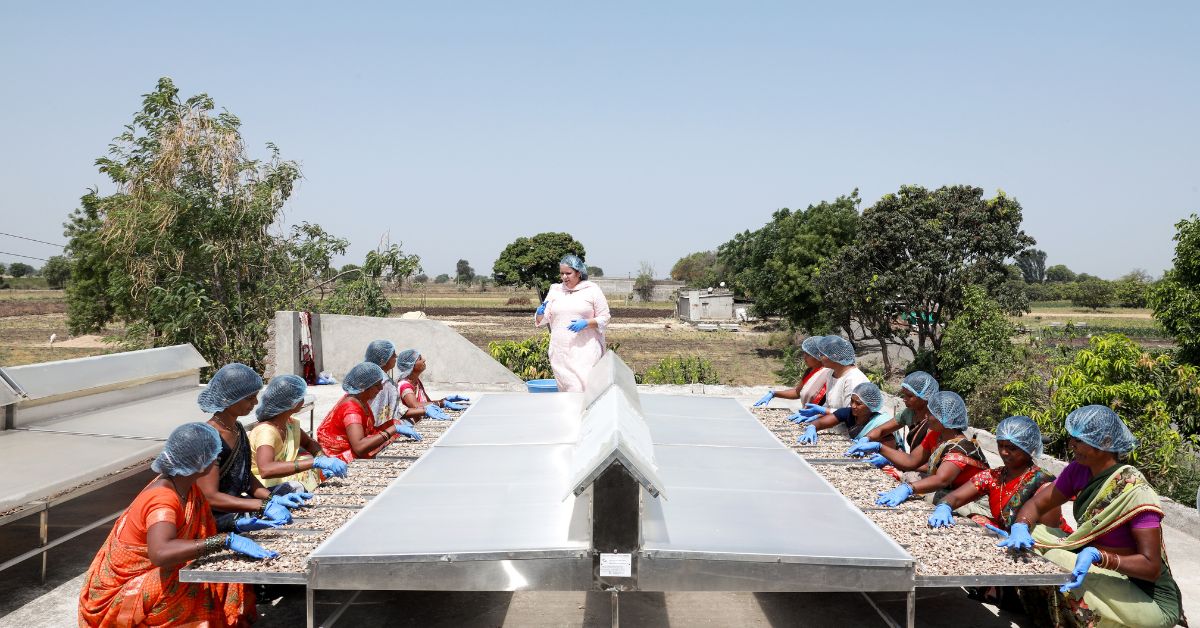
“My parents always used to say that we rise by lifting others. They helped me understand the farmers’ problems. Uttarakhand is very destabilised in terms of geography. Natural calamities such as floods and landslides frequently damage crops affecting livelihoods,” she says.
“I wanted to use my scientific knowledge and new-age technologies to help the most underprivileged get out of poverty and help them realise their potential. We wanted to develop solutions keeping them in the centre,” she adds.
While doing so, Nidhi is also empowering women as she employs small-holder women farmers at every step. Women collect the cosmetically damaged produce from women farmers and give it to women micro-entrepreneurs, who use patented solar-powered food processing technology to convert the produce into value-added products. For instance, tomato is converted into tomato powder, onion into onion flakes, and ginger into ginger granules.
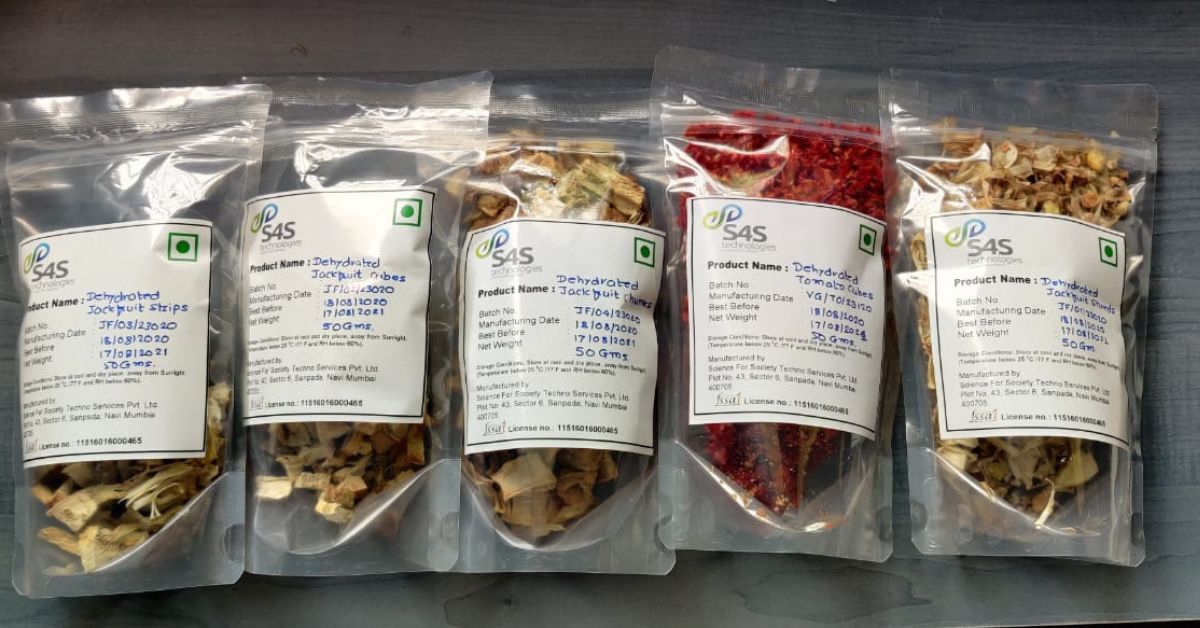
The solar-powered machines including dehydrators and cutting machines remove moisture from produce within 6-8 hours without adding any chemicals. With the help of these machines, women convert farm produce into non-perishable items while retaining colour, aroma, and up to 95 percent of its nutrition, claims Nidhi.
The produce is taken to a central facility where it is graded, sorted, and made fit for customers through quality control operations. It is packaged and supplied to the food and beverage industries, including The Indian Railways and Sodexo.
“With this, farmers now have a direct market for lower-grade produce. They have seen an income growth of 10–15 percent while women micro-entrepreneurs have observed an increase of up to 200 percent in their income,” she informs.
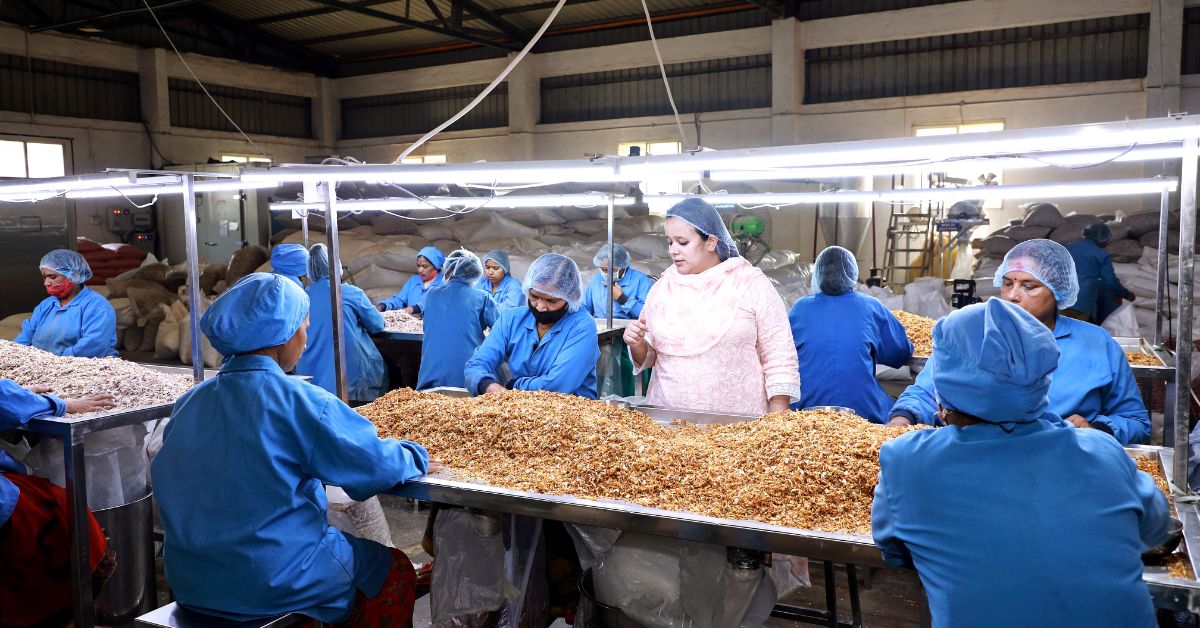
For Nidhi, it’s quite fulfilling to see how the work transforms the lives of rural women. “These women who were not initially confident and did not have a say in the household are now taking leadership roles, creating assets for themselves, becoming decision-makers in the family, lowering their household burden, and are more respected by their children. They are not the last to eat; they are now breadwinners,” she smiles.
For instance, Shobha Ramesh Rathod, who has been working as a micro-entrepreneur with the company for the past three years, earned herself a life of dignity. “Earlier, I did not have my own house. Abhi mast makaan bana liya hai (Now I’ve built a nice home). I run the household now,” the 32-year-old, who earns up to Rs 24,000 in a month, tells The Better India.
She cuts and dries fruits and vegetables, such as onion, tomato, and ginger, into value-added products and supplies them to the company.
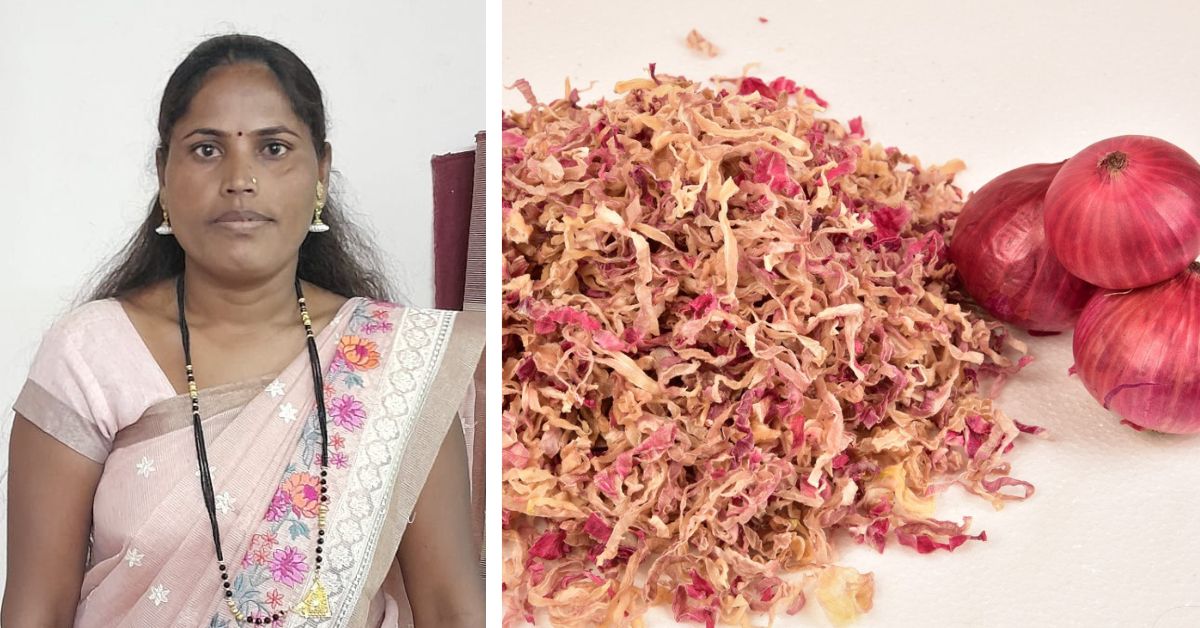
Like Shobha, over 6,000 smallholder farmers and 2,000 women entrepreneurs in Maharashtra, Odisha, and Andhra Pradesh have been empowered.
For her work to transform lives and livelihood, Nidhi was awarded the Cisco Youth Leadership Award 2022 by Global Citizen & CISCO and Women Transforming India Awards by NITI Aayog & United Nations (UN). She has also been listed in Forbes 30 Under 30 Asia and India.
Nidhi was also one of the 16 climate champions to be part of the recently launched Women Climate Collective (WCC), a pan-India initiative that seeks to galvanise women-inclusive actions and outcomes. “This collective is helping give voice to my micro-entrepreneurs. All these women at the grassroots level are changemakers. I am able to bring their stories to the larger platform,” she adds.
Edited by Pranita Bhat; All images: Nidhi Pant
If you found our stories insightful, informative, or even just enjoyable, we invite you to consider making a voluntary payment to support the work we do at The Better India. Your contribution helps us continue producing quality content that educates, inspires, and drives positive change.
Choose one of the payment options below for your contribution-
By paying for the stories you value, you directly contribute to sustaining our efforts focused on making a difference in the world. Together, let's ensure that impactful stories continue to be told and shared, enriching lives and communities alike.
Thank you for your support. Here are some frequently asked questions you might find helpful to know why you are contributing?













